- Home
- Lilith Saintcrow
Cormorant Run Page 5
Cormorant Run Read online
Page 5
“Yeah, well.” The boy stood, gangly and self-important, and scooped up his tray, one of the newer blue ones. Manda probably liked him. “I’m not gonna be like Barko. Field experience is better.” Coffee splashed inside his half-drained mug as he balanced it on his plate.
The new rifter chose a seat near the doors, her back to a wall and a good clear field of vision—oddly enough, right where the facility-employed rifters had sat before orders came to disemploy them. They never gathered at a table, though, just sat one apiece. One of the sardie wags had dubbed it the Experimental Section, but the rest just called it the Gallery.
One rickety crumb-laden table had just emptied, maybe a little bit quickly, when she started walking steadily for it with her tray heaped high. She didn’t appear to notice, just settled in a squeaking red plastic chair and began to carefully, methodically, chew and swallow. Three cups of coffee stood sentinel at the edge of her tray, and she didn’t hunch over her food like they did in prisons, shoveling before it could be stolen.
Aleks headed for her table, head held confident-high and his lab coat—how many did the kid have, for Chrissake?—flapping just a little. It was a shade too big for him, but neatly pressed all the same. Maybe his mother had taught him how to iron.
“Young love,” Riggs grinned, a few of his teeth mashed with canned, reheated peas.
Morov sighed, picking up his half-burnt cigar with blunt but delicate fingertips. “Kid’s gonna get himself hurt.” He shook his head, sadly, and began searching for his lighter. Manda hated it when you smoked in her canteen, but she could shove that preference right up her wide end. Ever since he was promoted, Morov figured he’d goddamn well earned a bit of cancer after lunch. And one after dinner, too. At least he didn’t roll makhorka.* He hadn’t since his last combat tour.
They watched as the kid approached the rifter’s table. She didn’t look up from her food. Her teeth were good—one of the first things a rifter of any brainpower did was pay for thermabond† and a shiny smile. There were so many different kinds of radiation inside a Rift, you didn’t want to hit tolerance on one that would turn your bones to sponge and your fangs to rotting stumps.
When the kid stepped over some invisible barrier of personal space, the rifter looked up. Those dark eyes were huge in her thin gray face, and between her long nose and her pointed chin, she looked almost feral. A creature in an iron cage, guarding a pile of meat, staring with bleary, hate-filled goggle eyes.
She lifted a drumstick to her mouth, slowly. Bit down, and the crunching sound of bone splintering was loud in the sudden hush. She sucked at the marrow, and when she had it her lips skinned back from those white, thermabonded teeth. Her irises were so dark her pupils vanished, and the effect was unsettling.
It didn’t seem to faze the kid. He dragged out the chair across from her, and the clatter of his tray hitting the tabletop was very loud, since everyone in the canteen had decided now was a good time to see if the rifter was going to go crazy. The only murmur was of bets being placed, and the squeaking of chairs as men craned to look.
Aleks said something, lowering into the chair, and the rifter just stared at him. She kept eating, mechanically, even chewing the bones—the thermabonding would like the extra minerals. Her unnerving stare never wavered, even when the kid laughed, a high, nervous sound.
After a few minutes, in the middle of one of his sentences, the rifter unfolded, leaping to her feet. Her chair banged the wall, a harsh hollow sound, and she scooped up her tray, still half full. Coffee splashed. Three cups of it would probably wire her half the goddamn night. Prisoners and sardies both liked caffeine as strong as possible.
Morov was pretty sure that wasn’t the only similarity between the two populations.
She took two steps to her left, and the kid had frozen. The rifter took another few paces, still with that queer, almost catlike grace. The table next to the one she’d chosen had already, magically, cleared. She pulled a chair out, placed her tray with finicky precision, and settled down to eating again, just as slowly and carefully.
The kid sat there for a while, the back of his neck a deep crimson, before he got up and hurried out, leaving his own tray, a spot of fresh blue, lonely on the table.
11
JUST ONCE
Clean.” Hurrack showed his stump-teeth in a wide, pacifying grin. “Untraceable. Takes standard cartridges.”
The rifter, in a dun corduroy coat full of flexarmor patches, considered the weapon. Finally, he put out one callused hand and accepted its weight. The dingy, crowded pawnshop was full of golden light for a few minutes, the sun blear-glaring red under a pall of formless gray cloud as it sank below the horizon. Alloy security bars in the display window almost vanished in the hazeglow, their shadows turned starving-thin. The light gleamed in the rifter’s dark hair, picked out the pockmarks on his cheeks, and glinted dully on his belt buckle. “Ammo?” He sighted down the barrel, his finger laid alongside the trigger and the muzzle pointing at the floor. Raised it a little, still sighting, his hand bouncing a little to test the heft.
“How much you want?” The right side of Hurrack’s grizzled face twitched, a neurological tic instead of a nervous one. His left shoulder was frozen, twisted high toward his ear; his ribs squashed down on the opposite side. His right leg, thick and muscle-corded, ended with a stack-heel boot that tried to keep him mostly even-keeled.
No answer. But Hurrack bobbed his head, understanding, and turned away from the weapons counter, shuffling for the ammo cases on shelves tucked far back from prying fingers. “All right, all right. Anything else?”
“Medikits,” the rifter finally said. All around him, merchandise was stacked, arranged, displayed. Leather jackets. Small sealed boxes with techcoceds* stamped on their outsides. Glittering jewelry on faded velvet pads in a cube of solidified glaslime sheets, impervious to blunt force. “Two-three? Full.”
That made the pawnshop proprietor stop with a swaying jerk, his right thumb hooked in his belt to keep his hand from swinging into a display case or the edge of a metal rack. “Gonna patch ’em after you pop ’em? That ain’t like you, Vetch.”
Whether it was or not, the rifter said nothing. He just waited, dark-gray gunmetal gleaming as it dangled at the end of his arm. His eyelids fell to half mast, and the momentary slackness of his face showed what he must have looked like when much younger. Sullen, unpretty but striking, a certain fineness to the long high nose and the thick dark lashes fringing hazel eyes—he could have been attractive, if not for the pitted scars and the cold, congested look of resentful pride so habitual it had settled on the bones and wouldn’t leave.
When Hurrack came back, the ammo boxes stacked on a gray plastic tray and the two medikits hitched high on his frozen shoulder, he made a small tut-tut with his tongue. “Put it in the case, or I ent gonna bring you shit.”
Vetch did so, sliding the gun into a carrying pouch a little too big for it, obviously meant to cradle a cousin brand of death-spitter. He zipped the case up, sent it sliding along the counter with a single efficient flicking motion, and stepped back, not committing his weight until the very last moment. Hurrack’s floor, jury-rigged from below to squeak and moan at the slightest movement, barely whispered under the rifter’s heavy boots. Heavy silver stimtape crisscrossed the instep and held the top together, glittering dully with the last flash of bloody gold before the sun slid behind the Event-era tenements opposite, diving for its nightly bath.
The sudden cessation of floodlight made the shop owner blink and sneeze, a wet, juicy sound. He thumped the ammo down and began counting it out while Vetch opened the medikits and glanced over their contents. He pointed when Hurrack had counted out enough—about half of what the man had hauled so painfully across the groan-creaking floor behind the counter—and reached into a pocket. “Forty.”
Hurrack laughed, a genuinely merry sound ending on a deep racking cough as he blinked the ghosts of sunset from behind his eyelids. “Fuck you, rifter. Two cent, and that�
�s it.”
“Kits are past their pulldate.” Vetch’s pupils swelled, adapting quickly to the sudden dimness.
“Like gauze is gonna go bad? And that piece is clean. No serial. No maggie-may-I* stuck up its ass. Two cent.”
Vetch blew out between his strong, white, thermabonded teeth. “I’ll go up a little, the piece is pretty sweet. Say, fifty-nine.”
Hurrack brightened. “Two cent, you bastard, or you can go to Deegan and get a boompop* that’ll blow your fucking hand off when it malfunctions.” His smile suggested the thought pleased him; he drifted a fog of halitosis over the counter with each word. “As well as substandard slugs to choke it with and med supplies crawling with squiggles.”†
“You’re not my only stop tonight, Hurrack.”
“Oh, I know. But I’m where your ass came first. Maybe I like that about you. Maybe we have a relationship, Vetch. So. One cent fifty.”
Vetch considered this. “One thirty. That’s it.” A peculiar flatness to his tone, one a less-acute listener would have called disdain but Hurrack would no doubt hear as finality.
“All right, all right. You rob an old man.” His right hand thrust out, and Vetch’s closed over his wrist. They shook once, wrist to wrist, the salute one rifter gave when making a deal with another. Perhaps that was why Hurr would risk this kind of transaction in the daytime.
After all, it had been Vetch who carried Ol’ Hurr pigaback out of the blur on his third and final trip, the one where a pressure-wave had gone overhead and the older man hadn’t hit the ground fast enough. The sinewash dragged Hurrack a good ten meters, racking and twisting his body while he screamed, and finally dumped him just out of the reach of a tangle of hungry silversedge, waving its flat-tape ends yearningly in his direction as it scented meat.
Vetch could have just left him there. He never gave any reason for dragging him out, and Hurr—now called “the Cork”—never asked.
The younger man’s mapper swallowed the piece in its carrying case; the ammo went into double paper bags with the medikits on top, the stiff almost-cardboard rolled down. Hurr the Cork pushed the bag across the counter, but his swollen left hand rested atop it for longer than usual.
“You goin’ in?” The twitching in his right cheek intensified, a thin crimson moisture collecting at the inside corner of the watery pale blue eye on that side. He hadn’t even made enough from his three trips to pay for thermabond on his teeth. It was maybe a blessing, maybe not—the bonding might have stopped his bones from warping, or it might have made them shatter under the stress.
Vetch raised his chin a little. Regarded the old man. The red drop thickened, traced a wandering path down Hurr’s jumping cheek, a drop of oil skipping along the bottom of a hot pan.
Vetch shook his head, gently loosened Hurr’s fingers, and took the bag. Set off across the shop, the stimtape on his boots creaking more loudly than the rigged floor.
“Just once,” Hurr said. “All I need.”
The younger man shook his head again and kept going. The bell on the door jingled sweetly, and he was gone.
Hurr didn’t bother wiping away the bloody track on his bunching, pleating cheek. They all came to the Cork when they needed quality, and sooner or later, one of them would do what he asked. He had his mapper all packed, and he only had to pay for once over the blur. He could carry his own piece, a twin to the one just sold.
There was one bullet in his mapper, and it would be enough.
The Cork crippled across the shop, the noise louder as he reached the door and stamped, heavily, a perverse grin lighting his half-smashed face. He locked the door and turned the sign, peering out into the narrow, dusty street.
Vetch was nowhere in sight.
12
HILLS AND CRACKS
A bunk, a wooden chair, a gray metal locker bolted to the wall. A tiny, utilitarian bathroom, with government grime in the corners but only faintly sour-smelling. There was even a window. True, it had reinforced glass, but it faced the blur and she could break it if she really wanted to. It was large enough to let her scramble out without too many scrapes or contusions.
“It’s not a hotel,” Kopelund said, ponderously. He even stood back from the door, not crowding her. He’d dealt with rifters before, it was all in the little things. His shoes were mirror-shine, but already wearing on the sides from his bulk and heavy step. “But you can lock the door. Tomorrow you can look at the slugwall and see what you think.”
Svin turned in a complete circle, studying every corner of the room. No apertures big enough for a fibercam, even. Not that it mattered. If poverty didn’t cure you of needing a scrap of dignity, prison did. Best to be a self-contained marble sliding through their maze, so it didn’t matter what the fuck they saw you doing. If you concentrated on the rolling noise, bumping against the sides of the corridor didn’t matter.
When she finished, she looked him up and down. His uniform didn’t look very wilted; maybe he kept his office cold so he didn’t sweat. He was apparently waiting for an answer, or some fawning gratitude.
She gave him neither. “I need to go into town. Supplies.”
“You want a guard?” As if she had a choice.
So you’re pretty sure I won’t go running off. Of course, if she did, she might get arrested again. She didn’t know if her record was cleared or not. Not like it mattered, with what she had planned, and asking would just give him more satisfaction than she ever wanted anyone to feel in her direction. “Not unless Javu Henkell has eyes in town.”
“Henkell? The warboy? He was executed two months ago. Murder and profiteering.” So he’d anticipated she’d ask, or he’d made himself familiar with the circumstances of her arrest.
Either way, it was good news. Pity Ashe wasn’t around to see it. Svin let the duffel dangle, leaning a little to offset its weight. “Then no.”
“You need credits?” Another hard little bullet question. Like it pained him to even ask. Nobody liked giving up cash, but this puckered-up bloat probably cared less for it than most.
“Fifteen hundred.” Might as well ask for more than she knew she’d get. If he was giving her cash for outfitting, he was very sure she wouldn’t ditch.
“You’ll get a kilo exactly. Don’t spend it all on liquor.”
Well, better than she’d hoped. “Rifters like getting drunk.”
“So I’ve been told.” A tense silence bloomed. Kopelund’s dark eyes in their almost-bruised pouches narrowed a fraction, that was all. He was big enough to do some damage, if he caught you.
But all that meat would slow him down.
It would be easy, Svin decided. Let go of the duffel-straps. Two quick steps to gain momentum, launching herself, grabbing the top lip of the doorway and pistoning out a leg to hit him in the face, then the other leg thrown out to wrap around his neck. Letting go, that moment of freegrav as she swung, the crack of a neck breaking, orienting herself inside a smear of color and kinetic energy …
The moment passed, like they usually did. The point was being ready.
Being prepared.
“What are you really after, in there?” Svin dropped the duffel, let her hands dangle, loose and useless. Not crossed in front like they demanded in prison. It felt strange. You could get used to anything, consider it normal, habitual, common.
“You know damn well what’s in there, Miss Pajari.”
“Don’t deadname a rifter, lundie.”* Her chin dipped a little. Her hair was clean now, brittle and breaking but longer than she thought it would turn out to be. It fell in her eyes, and she was going to need a trim. Or a shave.
“Apologies.” He smirked, looking not very apologetic at all. It was the expression of a government asshole who had everything lined up and liked to make everyone else sweat a bit, but only if he could avoid expending enough effort to get damp under the arms himself. An economy of stress-moisture.
She took one step forward. Two. Touched the doorknob.
“Good night.” Kopelund turned, an
d his footsteps echoed as he hauled his widening ass along. You could tell when someone had sat at a desk for a while. The hips became soft in a particular way; they swished just like a Brinkie manhole.* Especially inside red-piped sardie uniform trou.
The corridor could probably be locked at either end. The slice of ground outside the window was definitely in the enfilade of at least two sniper towers. But guard duty around the Institute itself was likely to be boring and sleepy. The rifters would try for ingress away from the hive, and the guards on their leavs would rabbit-hunt, hopped up on thick-boiled coffee and the prospect of bloodshed.
Svin pushed the door shut. Locked it, both knob and deadbolt. Dragged the chair across the worn linoleum floor and propped it just under the knob, not stepping back until she was sure it was perfectly placed. Then she prowled the space and the small washroom, flipping the light switches every time she passed them.
Light. Dark. Light. Dark. It was a luxury, to be in control of illumination. No guards to scream LIGHTS OUT or to plunge your small cubby into sheer blackness on a whim. She hadn’t been jabbed in the kidneys since the landing that morning. She was clean, her stomach was full enough to make her sleepy, and there were no ratholes along the baseboards. It could have felt lonely, except for the glorious freedom.
Dark. Light-dark. Light. Dark again.
She was only a few feet from the slugwall, so close to the blur she could taste it. She was going in, and Kopelund wanted her to bring out the Cormorant.
The silly fuck.
Finally, Svin pulled the thin mattress off the bolted-down bedstead, shoving it into the hole beneath the frame. The dingy taupe sheets and blankets were clean, the pillow lumpy but the case smelling of bleach and industrial soap. She stuffed the duffel between herself and the wall and curled up, staring across the flooring. Seen this close, it was all hills and cracks, and the dust under the bedstead tickled her nose. Svin ignored it, breathing past the maddening itch.

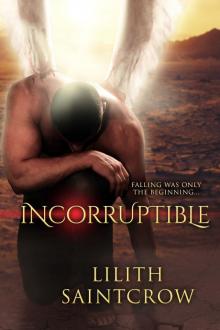 Incorruptible
Incorruptible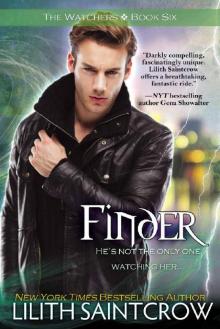 Finder (The Watchers Book 6)
Finder (The Watchers Book 6) Steelflower in Snow
Steelflower in Snow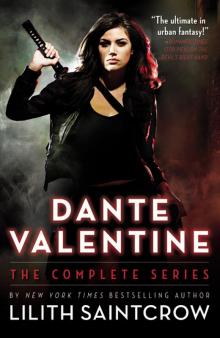 Dante Valentine
Dante Valentine Redemption Alley-Jill Kismet 3
Redemption Alley-Jill Kismet 3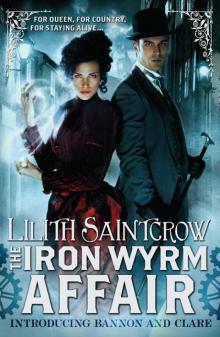 The Iron Wyrm Affair
The Iron Wyrm Affair The Demon's Librarian
The Demon's Librarian The Hedgewitch Queen
The Hedgewitch Queen Redemption Alley
Redemption Alley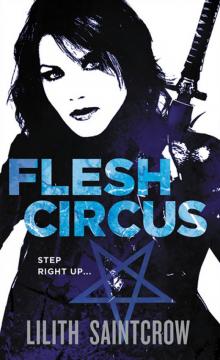 Flesh Circus
Flesh Circus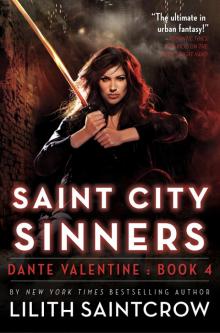 Saint City Sinners
Saint City Sinners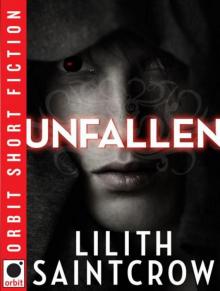 Unfallen
Unfallen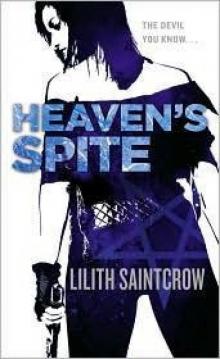 Heaven’s Spite
Heaven’s Spite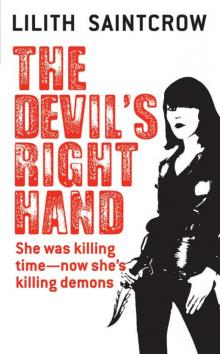 The Devil s Right Hand
The Devil s Right Hand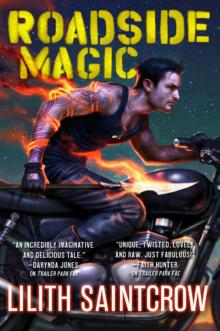 Roadside Magic
Roadside Magic Steelflower at Sea
Steelflower at Sea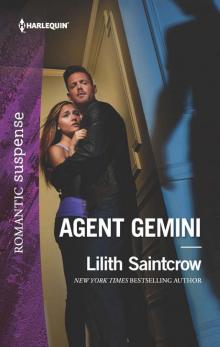 Agent Gemini
Agent Gemini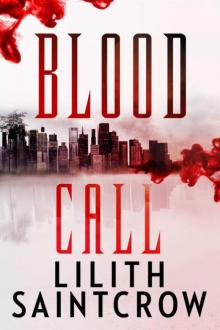 Blood Call
Blood Call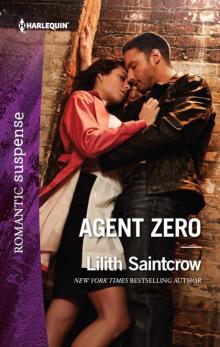 Agent Zero
Agent Zero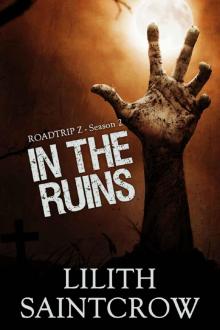 In The Ruins
In The Ruins Atlanta Bound
Atlanta Bound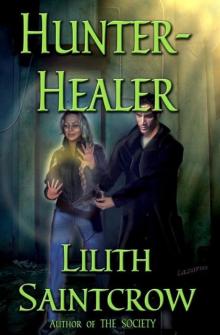 Hunter, Healer
Hunter, Healer Hunter's Prayer
Hunter's Prayer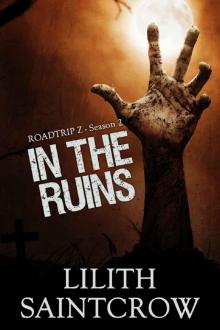 Roadtrip Z_Season 2_In The Ruins
Roadtrip Z_Season 2_In The Ruins Wasteland King
Wasteland King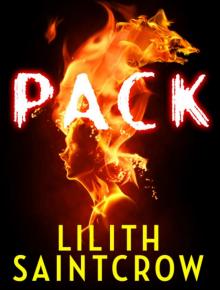 Pack
Pack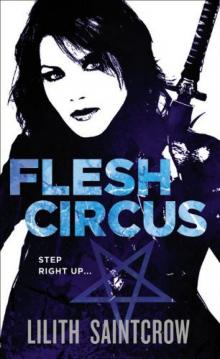 Flesh Circus - 4
Flesh Circus - 4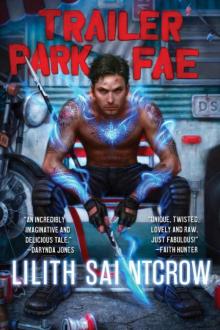 Trailer Park Fae
Trailer Park Fae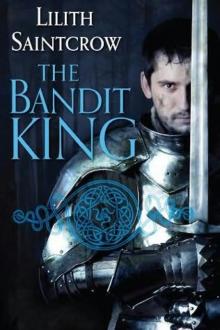 The Bandit King h-2
The Bandit King h-2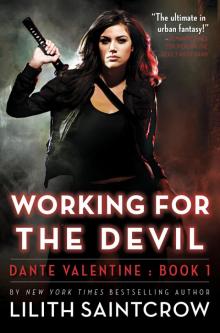 Working for the Devil
Working for the Devil Pocalypse Road
Pocalypse Road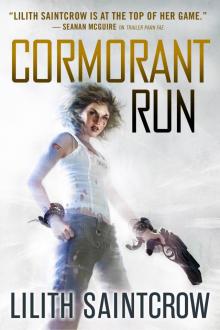 Cormorant Run
Cormorant Run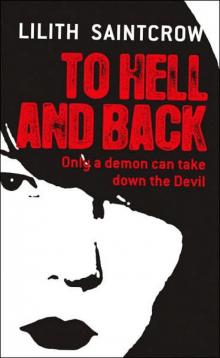 Dante Valentine Book 5 - To Hell and Back
Dante Valentine Book 5 - To Hell and Back Desires, Known
Desires, Known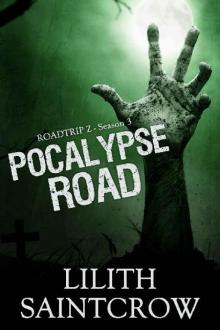 Roadtrip Z (Season 3): Pocalypse Road
Roadtrip Z (Season 3): Pocalypse Road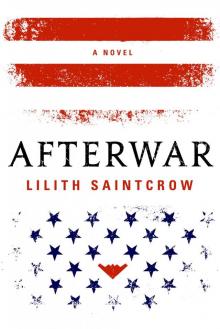 Afterwar
Afterwar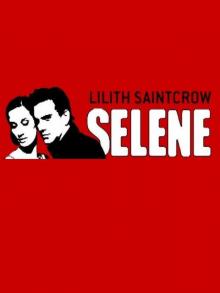 Selene
Selene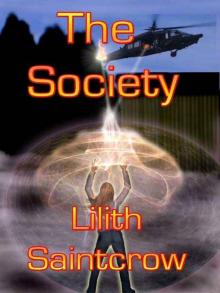 The Society
The Society The Hedgewitch Queen h-1
The Hedgewitch Queen h-1 Night Shift jk-1
Night Shift jk-1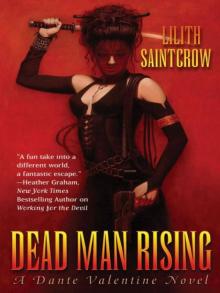 Dead Man Rising
Dead Man Rising Dead Man Rising dv-2
Dead Man Rising dv-2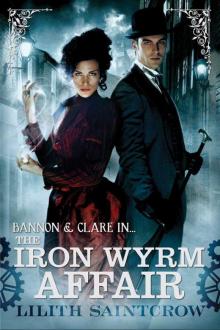 The Iron Wyrm Affair: Bannon and Clare: Book 1
The Iron Wyrm Affair: Bannon and Clare: Book 1 Saint City Sinners dv-4
Saint City Sinners dv-4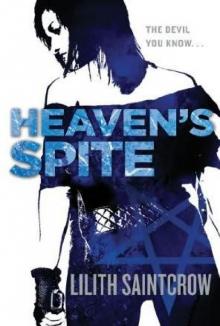 Heaven's Spite jk-5
Heaven's Spite jk-5 Beast of Wonder
Beast of Wonder Hunter's Prayer jk-2
Hunter's Prayer jk-2 The Damnation Affair
The Damnation Affair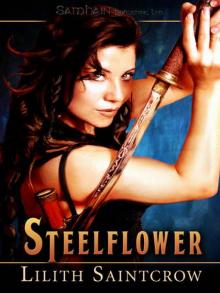 Steelflower
Steelflower The Red Plague Affair: Bannon & Clare: Book Two
The Red Plague Affair: Bannon & Clare: Book Two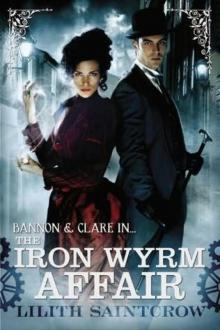 The Iron Wyrm Affair tb&ca-1
The Iron Wyrm Affair tb&ca-1 Flesh Circus jk-4
Flesh Circus jk-4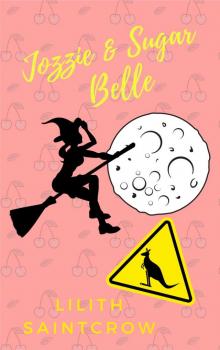 Jozzie & Sugar Belle
Jozzie & Sugar Belle Night Shift
Night Shift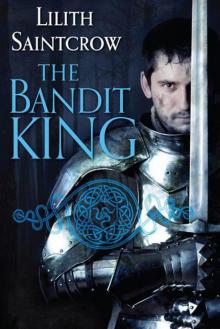 The Bandit King
The Bandit King![Hunter, Healer [Sequel to The Society] Read online](http://i1.bookreadfree.com/i1/04/05/hunter_healer_[sequel_to_the_society]_preview.jpg) Hunter, Healer [Sequel to The Society]
Hunter, Healer [Sequel to The Society] The Devil's Right Hand dv-3
The Devil's Right Hand dv-3 To Hell and Back dv-5
To Hell and Back dv-5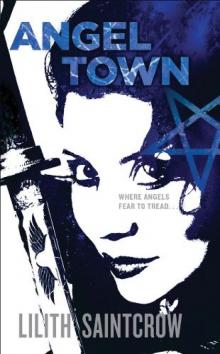 Angel Town
Angel Town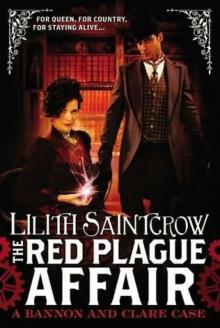 The Red Plague Affair tb&ca-2
The Red Plague Affair tb&ca-2 Redemption Alley jk-3
Redemption Alley jk-3 The Damnation Affair (the bannon & clare affairs)
The Damnation Affair (the bannon & clare affairs) Working for the Devil dv-1
Working for the Devil dv-1